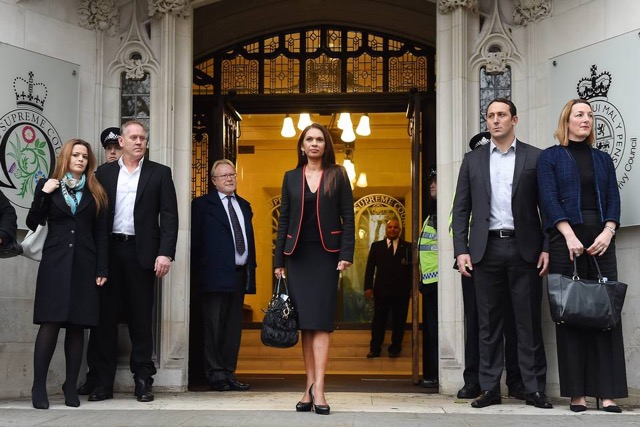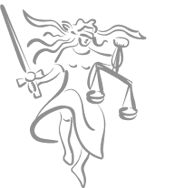Elaine Sun
J.D. Candidate, Columbia Law School, 2017
In recent years, land grabbing has become increasingly prevalent in Cambodia. The most extensive instances are economic land concessions (ELCs), whereby up to 10,000 hectares of government land per concession can be granted to private companies for agro-industrial exploitation for some fixed period of years, capped at 99 years. The 2001 Land Law of Cambodia also allows the government to expropriate private land from citizens for ELCs “in accordance with the provisions of the law,” and the Cambodian Constitution governs that expropriation “shall require fair and just compensation in advance.” In reality, however, many ELCs of private lands in Cambodia have been unlawful as they involve forced evictions of landowners without fair and equitable reparations and/or exceed the 10,000-hectare limit, thereby violating both the Land Law and the Constitution.[1]
The amount of ELCs escalated in 2001, when the European Union (EU) implemented the Everything But Arms (EBA) trade arrangement. The EBA initiative was intended to promote “sustainable development and good governance in the developing countries” by allowing the “least developed countries” (Cambodia included) to import products into the EU duty-free and quota-free. Despite the EBA’s objective of promoting economic development in less developed countries, it has also fueled land grabbing in those countries, as it increased the profitability of ELCs. As of 2007, 14.5 percent of the total arable land in Cambodia, or over 943,069 hectares, had been conceded to private companies through 59 ELCs. Estimates from 2013 put the amount of land granted to private companies through ELCs at almost three-quarters of Cambodia’s total arable land, which has brought about the displacement of over 400,000 people since 2003.
In August 2006, 19,100 hectares of private land in Cambodia’s Koh Kong province that are good for growing sugar cane were unlawfully granted in two ELCs to two Cambodian sugar companies, Koh Kong Plantation Co. Ltd. and Koh Kong Sugar Co. Ltd. The two companies are owned and managed by the same entities, share the same office space, and had applied for ELCs on the same dates. Using two separate companies to apply for ELCs was clearly the owners’ attempt to circumvent the legal restriction of 10,000 hectares per ELC and constitutes a violation of the 2001 Land Law of Cambodia. The two ELCs resulted in a single sugar plantation operated by Thai company Khon Kaen Sugar Ltd. (KSL), majority owner of the two companies. To make room for the sugar plantation, about 4,000 Koh Kong villagers were violently evicted from their lands and forced to relocate with nominal offers of compensation, again violating the Land Law and Constitution, which require “fair and just compensation in advance.” In 2009, KSL entered into a five-year contract to sell the raw sugar produced on the plantation exclusively to United Kingdom (UK) company Tate & Lyle Sugars (T&L) under the EBA initiative, and the first shipment of 10,000 tons arrived in the UK the following year.
The displaced villagers initially sought remedies in Cambodian courts. In February 2007, they filed a complaint in Koh Kong Provincial Court against the two sugar companies and plantation, seeking nullification of the ELCs. In September 2012, the judge determined that the provincial court did not have authority to hear land ownership disputes and turned the case over to the Cadastral Commission, a department of Cambodia’s Ministry of Land Management, Urban Planning and Construction. Subsequently, the villagers appealed to the Ministry of Justice and requested that the case be transferred back to the court on the grounds that it concerns the legality of the ELCs rather than land ownership. However, both the Ministry of Justice and the Cadastral Commission have yet to take action.
Realizing that bringing suit domestically was not effective due to the Cambodian judicial system’s lack of independence, the villagers turned to a more innovative, cross-border legal strategy crafted by Mark Moorstein, an attorney at the United States law firm Rees Broome, to seek redress. Working together with Moorstein, attorneys from British law firm Jones Day filed a complaint in March 2013 in the UK High Court against T&L on behalf of two hundred of the displaced Cambodian villagers (the case was taken over by UK firm Leigh Day in 2014).
In the complaint, the plaintiffs claim that they remain the legal owners of the land on which the KSL plantation grew sugar because the land was unlawfully conceded to KSL. Therefore, they assert that under Article 94 of the Land Law, which provides that “the owner of immoveable property is entitled to receive all types of fruits from such property,” the villagers are entitled to receive the sugar grown on their land. Since T&L knew that KSL attained the land unlawfully, T&L knew “or ought to have known given its position as a leading player in the sugar world . . . [that] the villagers were the owners of and legally entitled to possession of the raw sugar” grown from that land. In its acceptance of the raw sugar from KSL, T&L “wrongfully deprived the villagers of the ownership, use and possession of the sugar” for T&L’s own benefit. Thus, the plaintiffs seek compensation for the profit T&L earned from selling the sugar, which should rightfully belong to the villagers.
Despite courts’ general tendency to presume against extraterritoriality (see Kiobel v. Royal Dutch Petroleum Co., 133 S.Ct. 1659 (2013); Vava v. Anglo American South Africa Ltd., [2013] EWHC 2131 (QB)), the villagers succeeded in persuading the UK High Court to hear their case, Song Mao v. Tate & Lyle Industries Ltd. Two factors likely helped the plaintiffs get their case heard in a UK court: first, defendant T&L and the sugar are both in the UK (i.e. the claim has some relation to the UK), and, second, the plaintiffs already exhausted judicial processes in Cambodia before attempting to seek redress in other jurisdictions.
If successful, Song Mao may become an important case in the realm of torts in international commerce. Given that they could first overcome the presumption against extraterritoriality, future plaintiffs may be inclined to borrow from the villagers’ legal strategy, which has two particularly innovative aspects: first, “the identity of the defendants”—the defendants are not the Cambodian government, KSL, or KSL’s sugar companies, but rather T&L, the international buyer of the sugar; and second, “the jurisdiction”—the UK High Court is hearing this case because the plaintiffs followed the stream of commerce to where the sugar ended up, even though the tortious land grabbing and displacement occurred in Cambodia. If the villagers win this case, there may be an increasing number of future plaintiffs who attempt to seek redress farther down the stream of commerce—from relatively removed defendants and in foreign jurisdictions.
Featured image source: http://www.actionaidusa.org/sites/files/actionaid/imagecache/637x425px/image/land_grab_polyp_cartoon_-_no_border.jpg
[1] In addition, in 2012 the National Human Rights Commission of Thailand determined that the Koh Kong Sugar Cane Plantation ELC in 2006 breached “human rights principles and instruments.” See http://www.boycottbloodsugar.net/wp-content/uploads/2012/07/NHRC-Findings-on-Koh-Kong-25-July.pdf.




